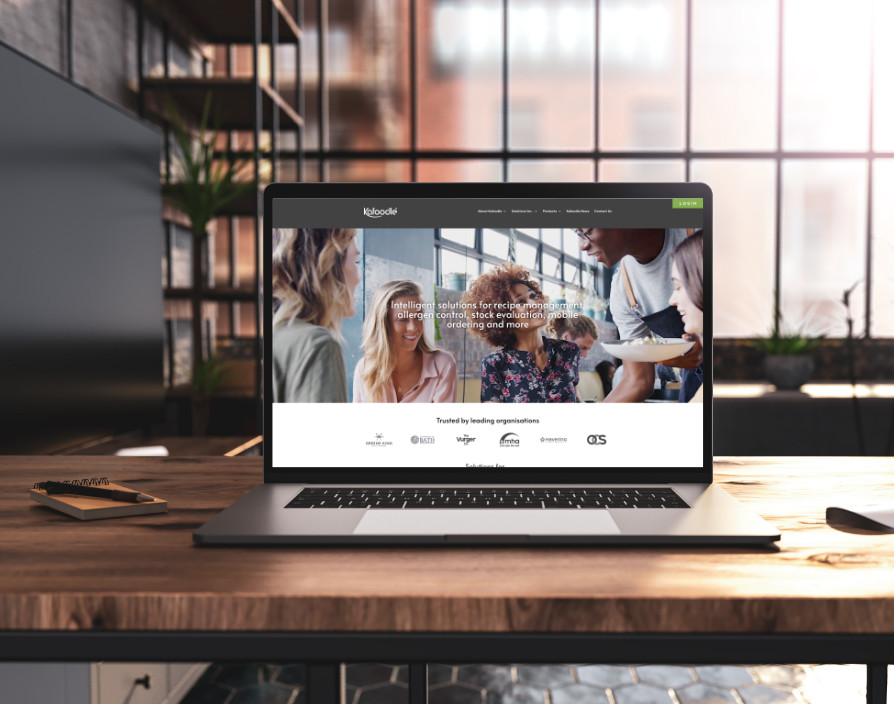Innovative brands have realised that without transforming their business models across to a virtual offering, they simply would not have been able to survive through the unprecedented times we have faced this past year. Technology doesn’t just connect us but cares for us too. Many companies will see the impact of their digital transformations beyond the COVID-19 era, in the longevity of their brands and the experiences of their customers.
Kim Antoniou, founder of brands Kafoodle and Auris Tech, has always been passionate about the power of technology. Kafoodle brings the love of food, the nimble use of data and an unstoppable desire for transparency together. It aims to liberate the way meals are both created and consumed.
“My husband has a severe sesame allergy, nearly dying in a restaurant because his allergen information was not clearly communicated to the kitchen. This experience was the catalyst for me to establish Kafoodle, using my technology background to establish a platform for the hospitality industry to access allergen information, quickly and easily. It allows commercial kitchens to manage allergy and nutritional information and to share this with its diners. During the pandemic, commercial kitchens have turned to click and collect, so we quickly pivoted our services to assist with this.
“The food industry is fast paced. Chefs are often uninterested in utilising tech because they are so busy. Kafoodle is a platform whereby kitchens can quickly and easily build their recipes with all allergenic information available to them. Shared with their diners, this then creates a safe, transparent and personalised dining experience,” explained Kim.
Kafoodle also deals with other aspects of food information and transparency such as cost, nutrition and waste. In 2017, Kim launched KafoodleKare – a version of the platform for use in hospitals where dietary intolerances and preferences can be considered alongside personal and medical dietary choices.
Kim’s other company, Auris Tech, was also born out of personal experience. She was motivated from having had two dyslexic children who dreaded the thought of reading aloud to anyone, together with the experience of witnessing her two-year-old grandson instinctively understanding how to replay his favourite cartoon on a smartphone.
Realising that screen-time was going to play a major part in children’s lives, she decided to develop an app that was both educational and entertaining. Together with co-founder Bil Bungay, they came up with the idea to create an app which actually listened to children as they read aloud; encouraging them, in real-time, to practise and read more. The only flaw in the plan was that, on investigation, the actual technology to support such an app didn’t actually exist. So, they had to develop it!
This started a journey which included a partnership with the University of Edinburgh and a year-long road trip, recording 1,000+ children’s voices, reading in all kinds of environments and creating a now-patented Advanced Speech Recognition Engine (ASR) that works in the context of children’s reading. With its 92%+ accuracy level, this is the ASR that empowers the children’s reading practice app, Fonetti.
Fonetti has both a home and schools platform and since the first lockdown, Kim has been providing access to home users, free of charge. She is currently in the middle of a programme of providing the schools platform to primary schools across the country.
And because the tech behind Fonetti can track not just when a book has been accessed but also if it has actually been read and at what level of accuracy. It is able to report back to teachers, educational departments and parents, exactly what the true position of primary literacy is today, where to spend their valuable resources and how this all changes over time. With unprecedented challenges presented to our educators and parents during this pandemic, the Fonetti app could not have been better positioned.
Kim has supported primary learners’ reading by providing Fonetti’s services to schools for free. With the home-schooling struggles many parents have faced through lockdown periods, Fonetti has been a valuable resource. Kim’s innovative app has solved a problem that she couldn’t have predicted prior to the pandemic.
If the past year is anything to go by, tech has been and will continue to be crucial for the survival of many businesses. Digital transformations have played a huge role in many companies’ abilities to continue to thrive. Jenni Young is CMO of Tappit, the cashless payment and data ecosystem solution for venues and events. Jenni is optimistic about working towards a solution whereby people will feel safe returning to events post-pandemic.
“Tappit provides a huge opportunity to improve the fan experience and increases profitability for venues, enabling operational efficiencies and growing engagement from the data it collects. The pandemic has accelerated the need for tech solutions and has created new ways of working and holding events.
“It’s been devastating to see the impact COVID-19 has had on the events industry this past year, but we want to help fans to feel as safe as possible returning to events. I think there’s a huge benefit from connections and insights that can be gained from conferences like Elite Business Live. You often gain the greatest opportunities and ‘light bulb moments’ when you are listening to others and gaining new perspectives – which is incredibly rewarding.”
Elite Business Live is an annual national conference running on the 11th and 12th March, in 2021 transforming to virtual registration to cater for the business community to pre-empt ongoing COVID restrictions. Kim and Jenni will both be part of the line-up of experts, imparting their knowledge on how their understanding of digital and tech USPs have ultimately meant their businesses have continued to thrive and supported others throughout the pandemic.
For more information about Elite Business Live and to register for free tickets, visit www.elitebusinessevent.co.uk/


